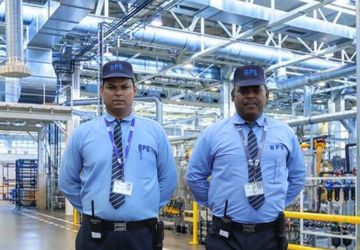Industrial Security

Industrial security refers to the set of practices and measures implemented to protect the physical, digital, and intellectual assets of industrial facilities and organizations. These assets can include personnel, equipment, data, and proprietary information. Industrial security is critical for ensuring the safety, reliability, and profitability of industrial operations, as well as safeguarding against various threats and risks.
Key components of industrial security include:
Physical Security: This involves securing the physical infrastructure of industrial facilities. It includes measures such as access control, surveillance systems, perimeter fencing, and security personnel to prevent unauthorized access, theft, vandalism, or sabotage.
- Cybersecurity: In the modern industrial landscape, cybersecurity is of paramount importance. Industrial control systems (ICS) and supervisory control and data acquisition (SCADA) systems are vulnerable to cyberattacks. Robust cybersecurity measures, including firewalls, intrusion detection systems, and employee training, are essential to protect against data breaches and operational disruptions.
Personnel Security: Ensuring that employees are trustworthy and well-trained is crucial. Background checks, security clearances, and ongoing training programs can help mitigate the risk of insider threats and human errors that may compromise security.
Risk Assessment: Conducting regular risk assessments is essential to identify potential vulnerabilities and threats. This involves evaluating the security posture of the organization, identifying critical assets, and assessing potential risks to these assets.
Emergency Response: Preparing for emergencies, such as natural disasters or security incidents, is crucial. Having well-defined emergency response plans, including evacuation procedures and communication protocols, can minimize damage and ensure the safety of personnel.
Supply Chain Security: Many industrial organizations rely on a complex network of suppliers and vendors. Ensuring the security of the supply chain is vital to prevent the introduction of malicious components or vulnerabilities into the production process.
Compliance and Regulations: Industrial facilities often operate in regulated environments, and compliance with industry-specific and government regulations is essential. Organizations must stay up-to-date with relevant laws and standards to avoid legal and financial repercussions.
Security Culture: Fostering a security-conscious culture within the organization is critical. This involves promoting security awareness among employees and encouraging them to report any security concerns or incidents promptly.
Monitoring and Auditing: Continuously monitoring security systems and conducting regular security audits help identify weaknesses and areas for improvement. It also ensures that security measures remain effective over time.
Technological Advancements: Industrial security must evolve to keep pace with technological advancements. As industries adopt new technologies like IoT (Internet of Things) and automation, security solutions must adapt to protect these systems adequately.
In today’s interconnected and digitized industrial landscape, industrial security is not just a matter of safeguarding physical assets but also protecting data, intellectual property, and the continuity of operations. A holistic and proactive approach to industrial security is essential to address the ever-evolving threat landscape and maintain the integrity and resilience of industrial processes.
